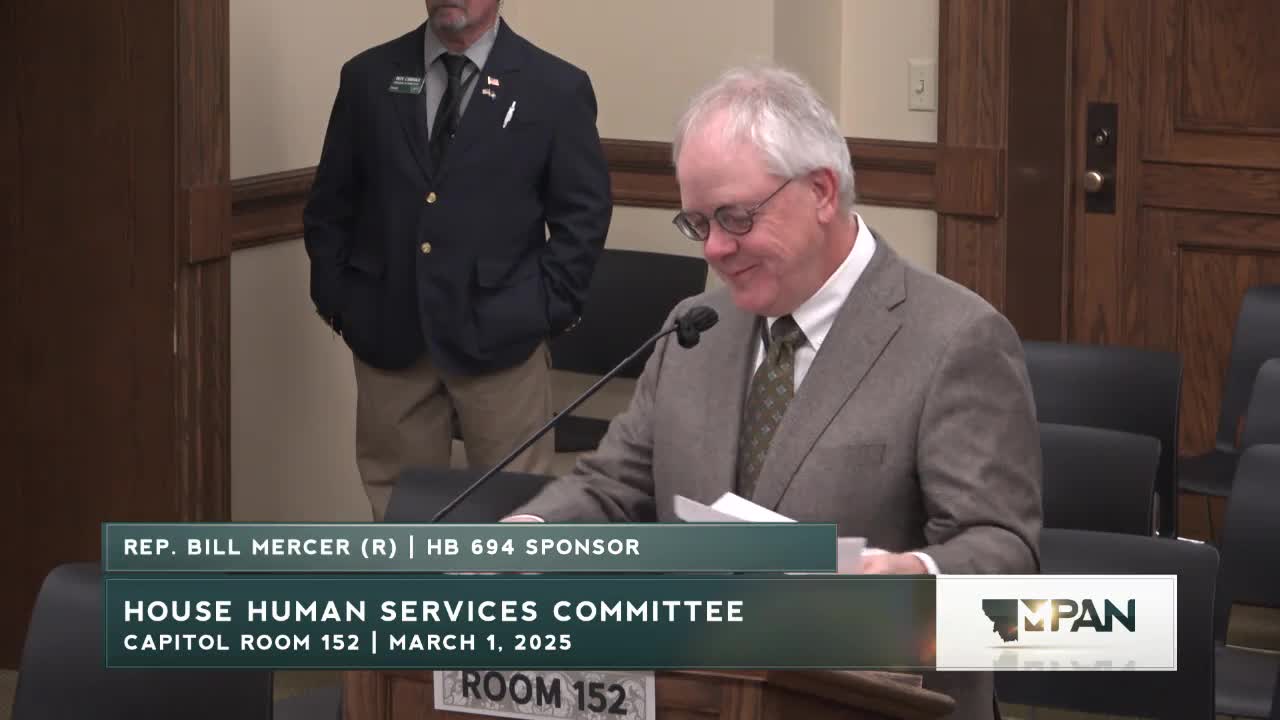Committee backs amendment disfavoring out‑of‑country placements but exempts Indian Child Welfare Act cases
Get AI-powered insights, summaries, and transcripts
Subscribe
Summary
The House Health and Human Services Committee advanced House Bill 694 with a conceptual amendment exempting children subject to the Indian Child Welfare Act (ICWA), while sponsors said the change clarifies policy preference that in‑country placement is preferred for reasons of proximity and reunification opportunities.
Representative Bill Mercer (House District 52) opened the hearing on House Bill 694, which proposes targeted amendments to statutes guiding the Child and Family Services Division (CFSD). Mercer told the committee the changes are intended to clarify that CFSD’s role is to intervene in situations of child abuse or neglect and to state a placement preference: placements outside The United States are “disfavored.”
Mercer said the change is advisory rather than an absolute prohibition and would not override existing placement statutes, such as priority placement with extended family, noncustodial parents or other statutorily preferred placements. He told members the additional language would help focus decisions on proximity and reunification opportunities.
Nikki Grossberg, CFSD division administrator, appeared as an informational witness and told the committee the proposed clarifying language would not prevent the department from performing any current statutory duties. She noted the department and courts must continue to follow statutory preferences, including placements with relatives and, where applicable, federal Indian Child Welfare Act (ICWA) requirements.
Committee discussion focused on edge cases such as military families stationed abroad and Native children with placements in Canada. Vice Chair Howe moved a conceptual amendment to exempt children who are subject to ICWA from the “disfavored outside The United States” language; Mercer indicated he was amenable. Staff advised the conceptual amendment would be feasible as drafted (creating subsections 4(a) and 4(b) and exempting ICWA cases).
Executive action: Committee members approved the conceptual ICWA exemption and later voted the bill out of committee. During the roll call, the chair recorded the final committee vote as 12 in favor and 9 opposed; the bill will move to the House floor.
Ending: Sponsors said the statutory change is intended as a policy preference to support reunification and preserve proximity to family, while acknowledging circumstances could still justify out‑of‑country placements.
